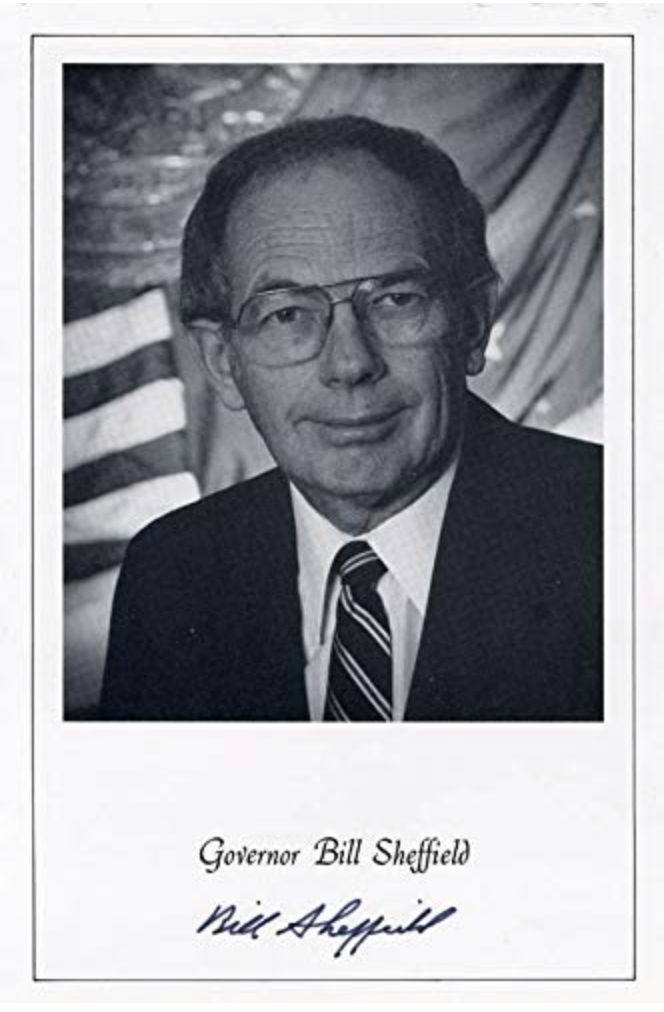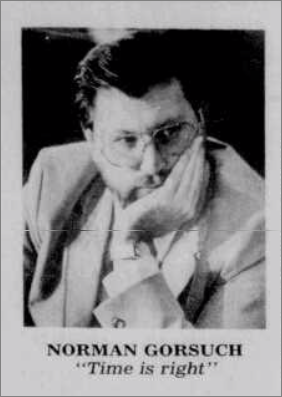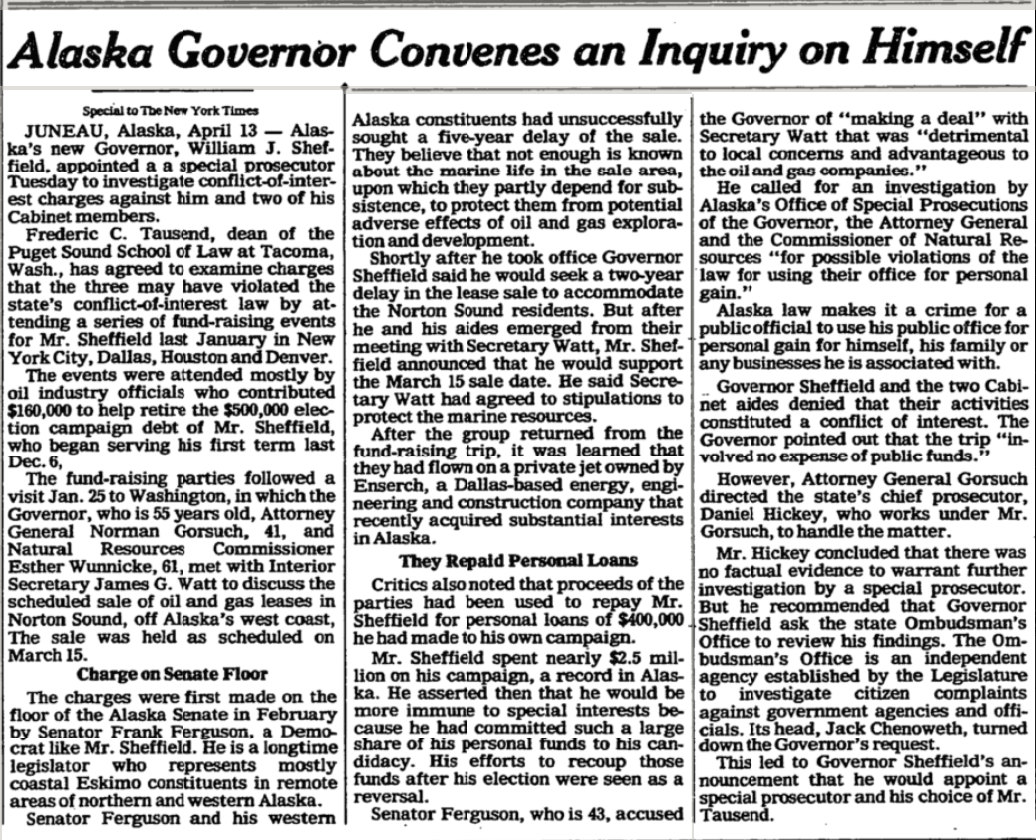Talk of impeachment always stirs the emotions. In my lifetime, I’ve seen Richard Nixon come close to impeachment before giving in. I watched Bill Clinton squirm but survive. Once more our primal instincts are under attack.
Today’s lesson starts with Alaska Governor Bill Sheffield’s scandal-plagued administration of the 1980’s. As a Democratic gubernatorial candidate in 1982, Sheffield sold himself as a successful hotelier and businessman; he was “a decision maker, a leader.” He was a man used to making deals, not a conventional politician. That skillset came back to haunt him. Though he survived an impeachment inquiry, Sheffield left office with a cloud hanging over his head.

The troubles started early. His nominee for Attorney General, Norm Gorsuch, got in trouble with lawmakers almost immediately. In the small state politics of Alaska, the fact that he’d been part of a previous administration weighed against him. No matter. More substantive complaints would soon emerge.

Gorsuch was one of two Cabinet appointees to accompany Sheffield on a Washington, D.C., junket to meet with President Reagan’s Interior Secretary, James Watt. Although the Governor had campaigned to delay petroleum lease sales in Alaska, the Watt meeting turned on the Governor’s request to open petroleum sales in Norton Sound.
Then, later in that junket, Sheffield and his Cabinet appointees attended a series of oil-industry sponsored fundraisers. Those meetings netted Sheffield about $131,000 toward paying off his $540,000 campaign debt. Was that why he changed his mind about the petroleum leases?

Some members of the Alaska legislature thought so. They also thought that the A.G.’s participation in the fundraiser was illegal. The opposing party took the lead and kicked off a House Judiciary investigation. They asked the Governor to provide supporting documents. He refused. The legislators appointed a special prosecutor to pursue the allegations. That went nowhere. The legislature adjourned. Adjourned, in this case, without confirming Sheffield’s Cabinet nominees, Gorsuch included.
Given that the Alaska constitution requires Cabinet appointments be confirmed by the Alaska legislature sitting in joint session, some of the legislators decided to hold out until they got more cooperation from the governor.
To break the stalemate, Sheffield called a joint session of the legislature. The holdouts declined to attend, robbing the Governor of the necessary quorum. ”I was one of the lawless escapees,” said Representative Vernon Hurlburt, who was a bush pilot at Sleetmute, a remote village on the Kuskokwim River. “Some of us rented a plane and I flew us over to Skagway.”
Sheffield responded by requesting the Senate President to order their attendance. Alaska State Troopers soon escorted recalcitrant members to Senate chambers. Gorsuch and other Sheffield nominees were ultimately confirmed, though some questioned the legality of those confirmations. These rebels soon backed up their complaints a with legal action they ultimately lost.
A civil action charging deprivation of civil rights was filed in Federal District Court in Anchorage. The plaintiffs, Representatives Jack Fuller, Democrat of Nome, and Richard Shultz, Republican of Delta Junction, say they were ”forcibly and violently” detained and propelled into the Senate chamber.
Edgar Paul Boyko, Attorney General in Gov. Walter J. Hickel’s cabinet, filed the suit, which asks $400,000 punitive damages and unspecified compensatory damages from [State] Senator Kerttula, Public Safety Commissioner Robert Sundberg, and two state troopers, James Vaden and Lawrence Mix.
Wallace Turner, “Alaskans Assert Governor Called Out Trooper to Ward Off Political Attack,” New York Times, June 18, 1983
Sheffield’s opponents — from both parties — were now gunning for him. They reckoned there should be a price to pay for a high-handed executive who wanted to run roughshod over their legislative prerogatives. A little more than two years later, Governor Sheffield handed them a golden opportunity. Impeachment was right around the corner.
Excerpts from the unpublished original manuscript, “Sailor Take Warning,” by Leland E. Hale. That manuscript, started in 1992 and based on court records from the Alaska State Archive, served as the basis for “What Happened in Craig.”
Copyright Leland E. Hale (2019). All rights reserved.

Order “What Happened In Craig,” HERE and HERE. True crime from Epicenter Press about Alaska’s Worst Unsolved Mass Murder.